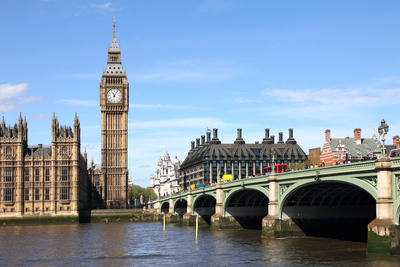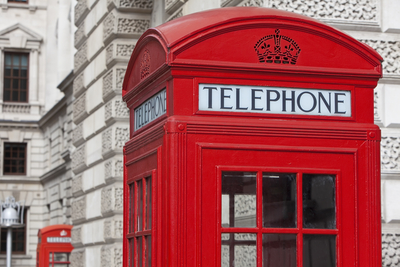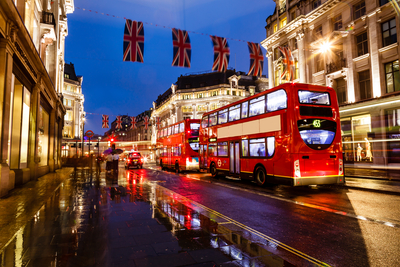The English Difference
 The UK has some of the toughest gun control laws in the world. If you want to own a gun, it is very difficult to do so. In short, it has been designed to put as many barriers in the way as possible and to assume the worst, rather than hope for the best.
The UK has some of the toughest gun control laws in the world. If you want to own a gun, it is very difficult to do so. In short, it has been designed to put as many barriers in the way as possible and to assume the worst, rather than hope for the best.
In the United States, you can declare that it is your constitutional right to bear arms. But in the UK, you need to spend hours filling in paperwork and proving to police officers that you are not a danger to society. The system is administered by police forces in each part of the UK and in England, Scotland and Wales there are separate licences for shotguns and for other firearms.
Firearms licensing came in only in 1920. In the wake of the 1987 Hungerford massacre, in which one lone gunman killed 16 people, Britain introduced new legislation -- the Firearms (Amendment) Act 1988 -- making registration mandatory for owning shotguns and banning semi-automatic and pump-action weapons. But since 1997, possession of a handgun has been illegal.
2012 Olympic Games Continued the Gun Ban Discussion
The possession and use of pistols was banned in the UK in the aftermath of the massacre in Dublane, Scotland, in 1996 when 16 schoolchildren and a teacher were killed. Critics say that the post-Dublane gun controls were an over-reaction. Be that as it may, pistol shooting as a sport became an incidental victim to this legislation. We may not in the UK have the equivalent of the US National Rifle Association, but the British Shooting Sports Council and the Sportsman's Association of Great Britain and Northern Ireland are articulate in drawing attention not just to the problems of British participants in shooting events but also to the question of hosting any such events in 6 years' time.
What happened at Dunblane?

The deaths of 16 children aged five and six together with their teacher in the Scottish town of Dunblane in 1996 was one of Britain's worst incidents of gun-related violence. The massacre stunned the country, but what did the UK do to try to prevent such a tragedy happening again?
Shortly after 9 a.m. on March 13, 1996, Thomas Hamilton, a 43-year-old former Scout leader, burst into the gymnasium of a primary school in the tranquil Scottish town of Dunblane.
Within minutes 15 children aged five and six had died in a hail of bullets. One died later in hospital. Their teacher, Gwen Mayor, a 44-year-old mother of two, died in the attack, reportedly while trying to shield her pupils. Two other teachers were also seriously injured while heroically trying to protect children. Hamilton turned one of his four handguns on himself and was found dead at the scene.
The massacre, one of the worst incidents of gun violence in Britain, had a massive impact in Scotland, the rest of the UK and around the world. "This is a slaughter of the innocents, unlike anything we have ever seen in Scotland, and I think Scotland is going to have to come to terms with it," said Scottish MP Helen Liddell at the time.
After the massacre, appalled residents of Dunblane and bereaved relatives demanded to know how a person like Hamilton could be allowed to own guns. A highly successful public campaign in the months after Dunblane against gun ownership culminated in a petition being handed to the government with almost 750,000 signatures, according to British media reports.
In response, then Conservative Prime Minister John Major set up a public inquiry to look into gun laws and assess ways to better protect the public.
What happened next?
Within a year and a half of the Dunblane massacre, UK lawmakers had passed a ban on the private ownership of all handguns in mainland Britain, giving the country some of the toughest anti-gun legislation in the world. After both shootings there were firearm amnesties across the UK, resulting in the surrender of thousands of firearms and rounds of ammunition.
There were about 200,000 legally-registered handguns in Britain before the ban, most owned by sports shooters. All small-bore pistols, including the .22 caliber, were included in the ban, along with rifles used by target shooters. Penalties for anyone found in possession of illegal firearms range from heavy fines to prison terms of up to 10 years.
The public generally supported the ban, with most saying they saw no need for guns. However, others complained bitterly that the ban deprived legitimate sports shooters of their hobby and demonized them.

"Just because we enjoy shooting doesn't mean that we think everybody should be free to go into any shop on any street corner and buy a gun without having some suitable checks," firearms expert Michael Yardley, spokesman for Britain's Sportsmans' Society, said at the time. "There is obviously a balanced position. What we don't like is being scapegoated."
"Anyone who has any expert knowledge in this field realizes that a simplistic ban, bureaucratic ban on one category of firearm, was never going to solve a real world problem," Yardley said.
What effect did the ban have?
The most high-profile mass shooting happened in 2010 when a lone gunman killed 12 people in a four-hour shooting spree in rural Cumbria, northern England. After a huge manhunt, the body of 52-year-old taxi driver Derrick Byrd was found alongside two powerful rifles, one equipped with a telescopic sight.
Criminologist Peter Squires said the real picture shows a slight but significant decline in the use of firearms since Dunblane. The figures don't tell the whole story, he said, but "the murder rate has fallen and all the indicators are moving in the right direction." “Social conditions are fundamental in deterring crime,” says Squires, professor of criminology and public policy at the University of Brighton in Great Britain, who has studied gun violence in different countries and concluded that a “culture of support” rather than focus on individualism, can deter mass killings.
Squires, professor of criminology at Brighton University and a member of the Gun Control Network, said he believed the fall in crimes where guns were used was due to new legislation coupled with better policing against gangs.
"Any weapon can be misused in a crime. Gun control will never be a complete solution to events like the mass shooting we saw in Connecticut. The swamp of gun use has not been fully drained and while tighter gun control removes risk on an incremental basis, significant numbers of weapons remain in Britain."
He added it was important to note that a big problem remained in Britain and other countries with imitation guns, converted weapons such as starting pistols and air guns, "which many people regard as only one step up from a toy."